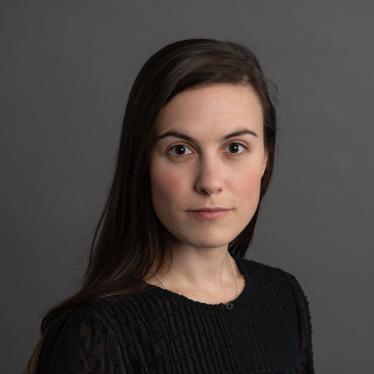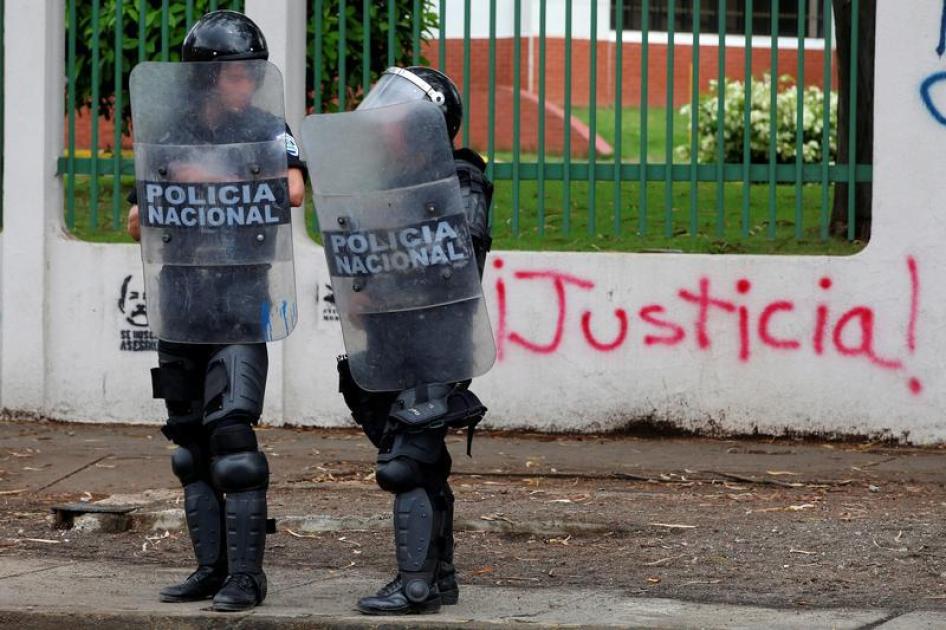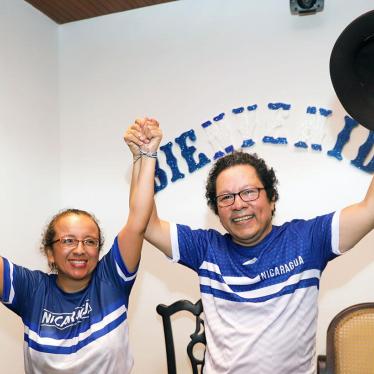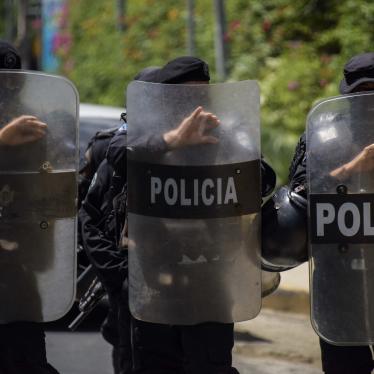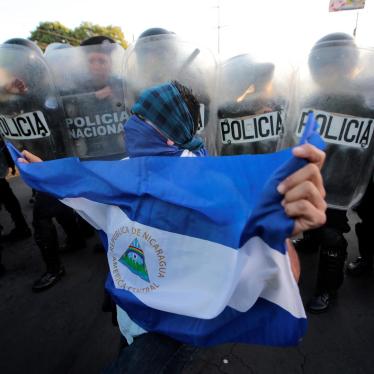For more than two years, top members of Nicaragua’s Ortega administration, who bear responsibility for egregious abuses committed during the 2018 government crackdown, have enjoyed impunity. New US sanctions offer hope for victims who are waiting for justice.
On March 5, the United States announced sanctions on three Nicaraguan National Police officials for their role in “serious human rights abuses” connected to the crackdown. The US also imposed sanctions on the Nicaraguan National Police as an entity, blocking any assets it controls in the US. The US government has already imposed sanctions on some key members of President Daniel Ortega’s inner circle, including his wife, Vice President Rosario Murillo, and the current chief of the National Police, Francisco Diaz.
In 2019, Human Rights Watch recommended sanctions against two of the three named officials—Luis Alberto Pérez Olivas and Justo Pastor Urbina—after finding credible evidence linking them to acts of violence and repression.
Pérez Olivas is the head of El Chipote prison, the “main place” for egregious abuses against anti-government demonstrators, the Office of the UN High Commissioner for Human Rights said in its August 2018 report. Human Rights Watch interviewed multiple detainees from El Chipote who reported torture and ill-treatment, including verbal assaults, beatings, rape, electric shocks, sleep deprivation, mock executions, burning, and fingernail removal.
Pastor Urbina is the chief of the Department of Special Operations of the National Police, which played a “central role” in the repression throughout the country, said the Interdisciplinary Group of Independent Experts of the Inter American Commission on Human Rights in its December 2018 report. Urbina’s staff raided the offices of the independent newspaper Confidencial and the nongovernmental organization Nicaraguan Center for Human Rights in December 2018.
Since the crackdown began, the government has raided the offices and forced the closure of nine respected nongovernmental organizations and raided the offices of multiple independent news outlets, in addition to threatening, harassing, and arbitrarily detaining journalists. Local groups estimate that over 90 journalists have fled the country since April 2018. On March 10, the UN refugee agency reported that over 100,000 people have fled Nicaragua since the crackdown began.
Juan Valle Valle, the third official sanctioned, is the chief of the Department of Surveillance and Patrolling of the National Police, which has “systematically restricted the freedom of movement and expression of Nicaraguans living in Managua, Nicaragua” the US Treasury said in imposing the sanctions.
The new sanctions are a positive step, not only to hold those responsible to account, but also to help curb ongoing abuses. The UN human rights commissioner’s office said that the Nicaraguan National Police have continued to repress and arbitrarily detain protesters and that armed pro-government groups have threatened, harassed, attacked, and beaten journalists, human rights defenders, and family members of those killed in the 2018 protests. Local rights groups have also accused the riot police of using violence to break up attempts at peaceful protest.
On February 27, the UN high commissioner for human rights, Michelle Bachelet, addressed the ongoing abuses in her oral statement at the UN Human Rights Council’s 43rd Session and called for continued monitoring of the human rights situation.
In a country without judicial independence, this international scrutiny sends the much-needed message that those responsible for abuse will eventually be held accountable—if not in Nicaragua, abroad. It is critical for governments in the region and Europe to reinforce this message and continue pressuring the Ortega government by adopting more targeted sanctions directed at top officials responsible for past and ongoing abuses.
